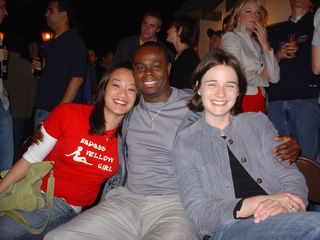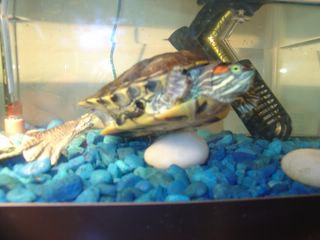Mirrors
When we go through life, everyone we’ve ever met and will ever meet will serve not only as a companion and a facilitator/player in our life lessons, but as mirrors. We learn who we are by looking into another person and recognizing their similarities and differences from our own, observations which we absorb and process for use within self-evolution and growth. When we find ourselves attracting the same kinds of people, there is a reason, something reflected that we need to be seeing but we just can’t seem to grasp until finally, the day we do, we stop needing to attract those people into our lives (or if they are necessary mentor reflections, we learn to appreciate them).
My own process has revolved around the issue of conditional and unconditional love. I have a hard time recognizing love and positive regard as entities existing in a present form. If a person gets too close to me, I start worrying about what is love and what will be the conditions placed upon it. I can look at a person and say, okay, I know he used to like me, because he gave me a hug yesterday, but maybe he doesn’t like me anymore. Maybe in the time between the last sign I got that he liked and respected me, I did something to make him lose that respect. I’ll know how silly this sounds in my head and laugh it off, but it makes me resistant to moving forward. It makes me prefer to keep people at a distance, because my brain thinks, if our relationship is casual, they won’t expect too much out of me and thus, they are less likely to be disappointed and to use that as a reason to turn away.
Yet, in my own dealings with people, this issue has made what I give people unconditional, sometimes to a fault. Acceptance of people and their uniqueness, their quirks, their flaws–everything is to be equally loved, appreciated and cherished, and mistakes are mandatorily forgiven because it’s the intention that counts.
Bugs Butt made a very interesting comment a few days ago that I’ve thought a lot about, how he finds that people with trust issues are the most trustworthy. It seems that by almost a rule of human nature, once someone has experienced something that has caused them a great deal of pain, it rises to the forefront of their consciousness–either they stay oppressed by the experience and are driven to inflict the same hurt on others, or they grow beyond the experience and become acutely aware of never wanting to be the cause of the same hurt to others. Often, they will go out of their way to protect others from this pain.
I’ve talked to many counselors who always said to me, you need to treat yourself as well as you treat other people. But what if it doesn’t come down to me treating myself as well as I treat other people? What if I do that already? The problem seems to be my trust in other people. Even if I could give myself unconditional love and positive regard, I would become a self-sufficient, independent being, because my distrust for the unconditionality of others would keep me separated from an external emotional/psychological network.
I happened to be thinking about all this this morning, when my mom IM’d me:
Mom says:
I talked to Sara, Michael’s therapist at school. I mentioned about your father, you and Michael
Julia says:
ok
Mom says:
I mentioned about how when daddy was upset about something, he would refuse to talk to you and Michael. She immediately said, Love should not be conditional, only unconditional love will provide children the “safety”.
Julia says:
yes, that’s what my therapist said too
Julia says:
i feel that all love outside of you or Michael is conditional. I don’t trust when people act like it’s not.
Mom says:
Kids must know, if they mess up, parents will still love them.
Mom says:
Immediately, she continued, “Your daughter is going to find a man, an image to the father… Does [your husband] want her to be treated this way by her husband?
Mom says:
I asked her to talk to your Dad, she said she would.
Julia says:
when?
Mom says:
Dad was the one who went to school to see her periodically. So he would go for next appointment.
Mom says:
I also told her that, your Dad has never had any one who gave him “unconditioned love.”. So, he did not know what that was. He has no one would love him even if he messed up.
Julia says:
yes
Julia says:
i won’t find someone like dad
Julia says:
i was doing it for a while
Julia says:
but it was too fucked up
Julia says:
those guys are such assholes
Julia says:
so now i’m conscious
Julia says:
but i won’t date. not until i’m sure about the nature of that person.
Mom says:
Good. But, remember, Mom will always love you and Michael, regardless what mistake you would make, and how messed up you could be. It’s unconditional love.
Julia says:
yes, thank god i have you guys
Julia says:
I know someone who had a father who was absent. so i had a father who was dangerous to me (always changing so I had to be careful to read him or get hurt). so i am a fighter, always prepared to defend. i am always looking for danger i may need to fight before it can hurt me or see it so i can avoid it if possible. my friend is very gentle, kind but soft inside. he’s not as defensive fight or flight, but is a little shy about asserting himself emotionally. It’s interesting how having a volatile father versus no father creates different results.
Mom says:
My grandma gave me unconditional love. She is a person with very kind heart (soft), and very brave. She is not educated at all (no school). She was an orphan, and she took care of her sister. She married twice and both husband died earlier. But she was a woman of love. She spoiled my father, who unbelievably screwed up his life with gambling. Yet, my grandma still did everything for him.
Mom says:
When he got into his legal problem, her hair turned white overnight. I was sleeping next to her every night, I heard her sigh, her turning over on Tatami (japanese bed). Yet, she still loved my father. and she loved the grand children.
Julia says:
yes. thank god for her. at least people who have a good influence of unconditional love somewhere have a chance of surviving. those who dont’ have any examples growing up will never know what it is and will struggle becoming complete.
Mom says:
I would scream and yell, telling her that her cooking was horrible, and I refused to eat. She would give me money to let me go out to eat. When we went to restaurant to have “won ton”, she always told me she was not hungry. So, I turned out to be the only one eating. (Actually it was because she did not have money to pay for both of us to eat)
Mom says:
You were taken care by her twice in your babyhood. She came to the U.S. twice. But, I did not take too much care of her because I was busy. I hope she would forgive me.
Mom says:
She died 21 years ago, but every time I thought about her, I am still in tears (I have to stop now, people may walk into my office).
Julia says:
love doesn’t count things–how much you give, how much you get. i think she was happy to see you happy , just as you are happy to see michael and i happy
Julia says:
that is enough
Mom says:
So, I know what unconditional love is. That’s why I have someone to compare. (But Dad did not. So, he was wonder
ing, he is much more responsible than his daddy, why no one appreciates him. He did not know that “conditional love” was upsetting sometimes more than “no love,” since you would not expect at all from the latter.
Mom says:
At any rate, we both fully understand where it came from. So, I am glad that you would know what that is. Nothing about you and Michael have done, it’s all himself.
Mom says:
True love will come. You will know when you meet him. Date if for fun. When true love comes, you will automatically be serious.
Julia says:
ok
Mom says:
I wish I had a friend like you when I was young. May be I would do a lot more things better, and my thinking would be much more clear.
Julia says:
sometimes it takes time and life experience to see things, not just the right people. People just serve as mirrors to help you understand yourself and your life, all in due time.


